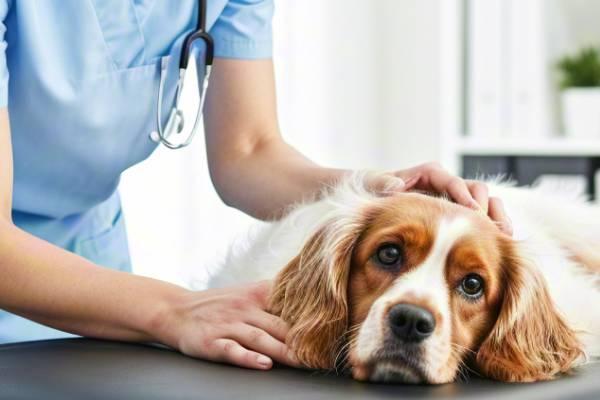What to Expect During a Pet Health Exam: A Comprehensive Guide
Regular veterinary health exams are essential for maintaining your pet’s well-being and catching potential issues early. Here’s a step-by-step overview of what typically happens during a routine checkup:

1. Pre-Exam Preparation
-
Medical History Review: The vet or technician will ask about your pet’s diet, behavior, exercise, vaccination history, and any concerns (e.g., vomiting, limping, or changes in appetite).
-
Weight & Vital Signs:
-
Weight is recorded to monitor growth or weight fluctuations.
-
Temperature, pulse, and respiratory rate are checked to assess overall health.
-
2. Physical Examination
The vet will perform a thorough "nose-to-tail" inspection:
-
Eyes, Ears, & Nose: Checked for discharge, redness, or signs of infection.
-
Mouth & Teeth: Examined for plaque, gum disease, or oral tumors.
-
Skin & Coat: Assessed for parasites (fleas/ticks), lumps, rashes, or allergies.
-
Heart & Lungs: Listened to with a stethoscope for abnormal rhythms or breathing sounds.
-
Abdomen: Palpated to detect pain, organ enlargement, or masses.
-
Joints & Muscles: Evaluated for mobility issues, arthritis, or swelling.
3. Vaccinations
-
Core vaccines (e.g., rabies, distemper) are updated based on your pet’s age, lifestyle, and local regulations.
-
Non-core vaccines (e.g., Bordetella for dogs or feline leukemia for cats) may be recommended if your pet is at higher risk.
4. Parasite Prevention & Testing
-
Fecal Exam: A stool sample may be tested for intestinal parasites (e.g., roundworms, giardia).
-
Blood Tests: Recommended for heartworm detection (dogs) or tick-borne diseases.
-
Preventive Medications: Prescriptions for flea, tick, or heartworm prevention may be discussed.
5. Diagnostic Tests (If Needed)
-
Bloodwork: Senior pets or those with symptoms may require tests to assess organ function, blood cell counts, or thyroid levels.
-
Urinalysis: Checks for urinary tract infections, kidney issues, or diabetes.
-
Imaging: X-rays or ultrasounds may be suggested for suspected internal issues.
6. Nutrition & Behavior Counseling
-
The vet may discuss diet adjustments, weight management, or supplements.
-
Behavioral concerns (e.g., anxiety, aggression) can be addressed with training tips or medication.
7. Follow-Up Plan
-
A schedule for future exams, vaccines, or dental cleanings will be provided.
-
You’ll receive instructions for at-home care, such as administering medications or monitoring symptoms.
Tips for Pet Owners
-
Bring a stool sample or previous medical records if it’s your first visit.
-
Note any questions beforehand to ensure all concerns are addressed.
-
Keep your pet calm with treats, a favorite toy, or a carrier for cats.
Regular exams (annual for young pets, biannual for seniors) help ensure your companion stays healthy and happy. Always consult your vet for personalized advice tailored to your pet’s breed, age, and health status.
Essential Questions to Ask During Your Pet’s Wellness Exam
A pet wellness exam is the perfect opportunity to address concerns, clarify doubts, and ensure your pet’s long-term health. Below is a list of key questions to ask your veterinarian, organized by category, to make the most of your visit:
General Health & Lifestyle
-
"Is my pet at a healthy weight? Should we adjust their diet or exercise routine?"
-
Obesity is a common issue; ask for tailored nutrition advice.
-
-
"Are there any breed-specific health risks I should watch for?"
-
Some breeds are prone to conditions like hip dysplasia, heart disease, or respiratory issues.
-
-
"Is my pet’s energy level and behavior normal for their age?"
-
Sudden lethargy, aggression, or anxiety could signal underlying problems.
-
Vaccinations & Preventative Care
-
"Which vaccines does my pet need now or in the future?"
-
Discuss core vs. lifestyle-based vaccines (e.g., rabies, Lyme, Bordetella).
-
-
"Are there new parasite prevention recommendations (fleas, ticks, heartworm)?"
-
Geographic location and seasonality may affect risk.
-
-
"Should we test for parasites or diseases even if my pet seems healthy?"
-
Annual fecal exams or blood tests can catch hidden issues.
-
Dental Health
-
"How are my pet’s teeth and gums? Do they need a dental cleaning?"
-
Dental disease can lead to heart, liver, or kidney problems.
-
-
"What at-home dental care do you recommend (toothpaste, chews, etc.)?"
Senior Pets (7+ years)
-
"Should we run bloodwork or urinalysis to screen for age-related issues?"
-
Early detection of kidney disease, diabetes, or thyroid disorders is critical.
-
-
"Are there signs of arthritis or cognitive decline I should monitor?"
-
Stiffness, confusion, or house-soiling may require intervention.
-
-
"Does my senior pet need more frequent checkups?"
-
Biannual exams are often advised for older animals.
-
Behavior & Training
-
"Is this behavior normal (e.g., excessive barking, litter box avoidance)?"
-
Rule out medical causes before assuming it’s behavioral.
-
-
"Can you recommend training resources or calming products?"
-
Anxiety or aggression may benefit from supplements, pheromones, or professional trainers.
-
Emergency Preparedness
-
"What symptoms should I consider urgent (e.g., vomiting, difficulty breathing)?"
-
"Do you have after-hours emergency contacts or clinic recommendations?"
Follow-Up & Long-Term Care
-
"When should we schedule the next wellness exam or booster shots?"
-
"Are there supplements or specialized diets that could benefit my pet?"
-
E.g., joint support, probiotics, or prescription food.
-
Tips for a Productive Visit
-
Bring notes: Jot down observations (e.g., coughing, changes in appetite).
-
Share your pet’s routine: Diet, exercise, and environment help the vet spot risks.
-
Request handouts: Ask for summaries of vaccine schedules or care tips.
By asking these questions, you’ll leave the exam with a clear action plan and peace of mind. Regular wellness visits paired with proactive communication are the best ways to ensure your pet thrives at every life stage!